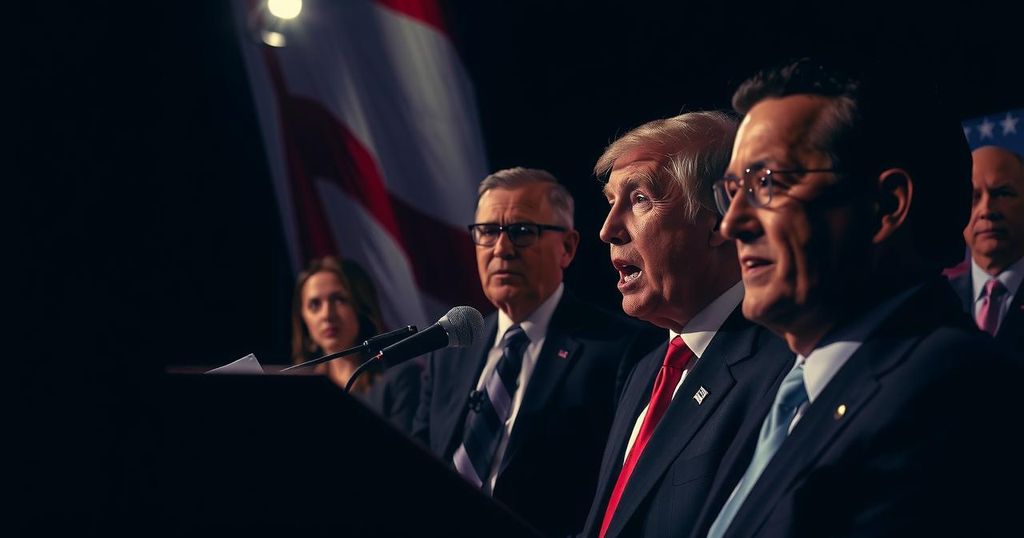Kamala Harris’s Missteps: Establishment Politics in an Anti-Establishment Era
Kamala Harris’s campaign positioned her as a defender of the political establishment during a time of widespread discontent among voters, which hindered her appeal. Polls reveal a consistent belief that the country is on the wrong track, compounded by issues like the Iraq War, financial crises, and poor pandemic responses. This disconnect between her establishment-friendly strategy and anti-establishment sentiments ultimately contributed to her campaign difficulties.
In recent analyses of Vice President Kamala Harris’s campaign strategy, it has become evident that she positioned herself as a strong advocate for the political establishment at a time when public sentiment favored anti-establishment sentiments. By attempting to unite a coalition of moderates and conservatives, including endorsements from prominent Republican figures, she sought to forge a broad base of support. However, this approach resulted in a misalignment with the prevailing mood among voters, who have consistently expressed dissatisfaction with the state of the country. Amid ongoing political and economic discontent, Harris’s efforts to champion the status quo were perceived negatively, exacerbating her campaign struggles. For over a decade, polls reveal that a significant majority of Americans believe the country is moving in the wrong direction, with Gallup and Pew studies indicating low levels of satisfaction and trust in government institutions. Factors contributing to this pervasive discontent include the fallout from the Iraq War and the 2008 financial crisis, a widely criticized pandemic response, and pressing issues such as inflation and homelessness. These concerns have been outlined in various polls highlighting voter dissatisfaction, with a staggering decline in public trust towards government institutions and officials. The obstacles facing the Biden administration further illuminate the challenges of the Harris campaign’s approach. Amid crises such as the chaotic withdrawal from Afghanistan, rising inflation, and ongoing geopolitical tensions, many voters perceive the current state of affairs as a failure of leadership. The reluctance of incumbents to acknowledge past mistakes only enhances the sentiments of alienation and distrust felt by constituents. This situation creates a complex interplay where conventional political strategies must adapt to meet the unique demands of a discontented electorate. Looking towards the future, it is essential for political leaders, including Vice President Harris, to take heed of public sentiment. Engaging meaningfully with the concerns of voters and demonstrating accountability for past actions will be vital. By aligning more accurately with the anti-establishment wave rather than positioning herself as part of the establishment, Harris may find a pathway to rebuild trust and resonate with constituents on crucial issues.
The context surrounding Kamala Harris’s campaign strategy reveals a significant disconnect between her approach and the prevailing attitudes of American voters. Over recent years, public sentiment has shifted towards a rejection of the established political order, with many individuals expressing dissatisfaction with government performance and the overall direction of the country. Amid a backdrop of crises, economic challenges, and political unrest, Harris attempted to navigate a course that sought the support of both moderate and conservative factions, which ultimately undermined her appeal within a largely anti-establishment atmosphere.
In summary, Kamala Harris’s campaign strategy faltered significantly due to her role as a champion of the political establishment in an era marked by widespread anti-establishment sentiment. Despite efforts to build a coalition by embracing bipartisanship, public discontent with the prevailing political climate ultimately led to her campaign’s struggles. Moving forward, adapting to the distinct needs of a frustrated electorate will be crucial for regaining public trust and fostering political engagement.
Original Source: www.nytimes.com




Post Comment